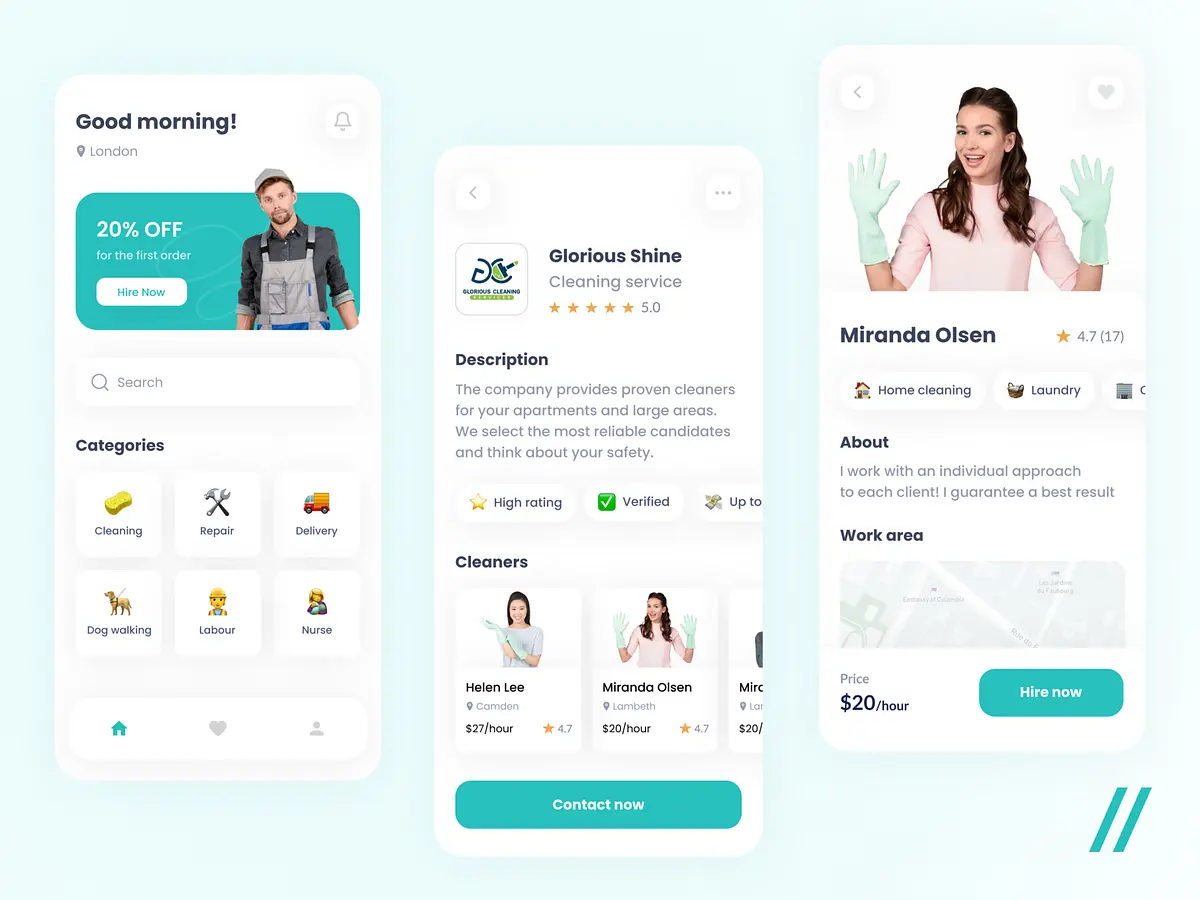AWS vs Azure vs Google Cloud – Choose the Right One for Your Business


AWS, Azure, and Google Cloud are the key players in the competitive cloud computing market. Choosing which is crucial for businesses, as seen with companies like Netflix and Boeing. We’ve prepared a straightforward AWS vs Azure vs Google Cloud services comparison guide to help you choose the right cloud provider for your business growth. With TECHVIFY’s deep understanding of these platforms, we aim to guide you in selecting the best option to scale your business and outpace competitors. Let’s explore these top cloud services and find the right match for you.
Together, Amazon Web Services (AWS), Microsoft Azure, and Google Cloud Platform (GCP) dominate 67% of the worldwide market for cloud computing services. This is significant, but the reasons might take time to be apparent.
Here’s what you need to know.
AWS, Azure, and GCP are seasoned in managing cloud infrastructure, which translates to enhanced services, better engineering education, and top-notch technical assistance for their users.
Moreover, they can foster innovation and securely store your data across the globe. Their renowned reputation also drives them to maintain high standards of responsibility.
Collectively, these aspects make it more probable for you to opt for one of these cloud service providers (CSPs) over others.
However, you’ll only require one cloud provider if you’re exploring a multi-cloud approach. Even if your plan involves using all three, understanding all the differences between AWS vs Azure vs GCP and which vendor best suits the specific services you need is crucial.

AWS vs Azure vs GCP
Comparing AWS vs Google Cloud vs Azure pricing can be difficult because of the variety of plans, discounts, and features each provider offers. Instead of a detailed price comparison, we’ll focus on the average expenditure you might expect. Effective management of cloud expenses is vital to minimizing costs and optimizing your budget.
Overall, among Google Cloud Platform vs AWS vs Azure. AWS and Azure have similar pricing structures due to comparable free tier offers and other pricing options. Thanks to its lower computing costs than AWS and Azure, Google Cloud is generally as the most cost-effective for serverless computing.
Let’s Evaluate the performance and scalability of Google Cloud Platform vs AWS vs Azure:
As the leading provider in cloud computing, AWS provides an extensive range of services and maintains a strong presence worldwide. It operates 25 geographic regions with 81 availability zones, 218+ edge locations, and 12 Regional Edge Caches. This extensive network ensures high uptime and robust network speed, making AWS a reliable choice for organizations requiring a scalable and high-performing cloud environment.
Azure is the second-largest cloud platform and is rapidly growing. It operates across more than 60 regions, each having a minimum of three availability zones, and includes over 116 edge locations. Azure’s broad geographic coverage, especially its substantial presence in enterprise sectors, provides excellent performance and scalability options. Its integration with Microsoft’s services makes it a particularly appealing choice for businesses already embedded in the Microsoft ecosystem.
Although among the three AWS vs Azure vs Google Cloud, GCP is the smallest cloud provider. It offers robust services and a significant global network. It includes 27 cloud regions with 82 zones and 146 edge locations. GCP’s infrastructure, backed by Google’s pioneering internet technologies, offers competitive uptime and network speeds, making it a strong contender in performance and scalability, especially for containerized workloads and data-intensive applications.
| Feature/Platform | AWS | Azure | GCP |
| Shared Responsibility Model | Simpler approach: Customers handle security “in” the cloud; AWS manages security “of” the cloud. | Three categories: Customer responsibility, shared area based on cloud model, and cloud provider responsibility. | The detailed Shared Responsibility Matrix specifies responsibilities in each instance. |
| Identity and Access Management (IAM) | Supports MFA, SSO, and RBAC. No built-in PAM; relies on third-party solutions. | Supports MFA, SSO, and RBAC. Offers Privileged Identity Management for PAM. | Supports MFA, SSO, and RBAC. No built-in PAM; relies on third-party solutions. |
| IaaS Security | Offers AWS Shield for DDoS protection, Secrets Manager, and AWS VPN. | Provides DDoS Protection, Key Vault for secrets management, and Azure VPN gateway. | Features Google Cloud Armor for DDoS protection, Secrets Manager, and Google Cloud VPN. |
| Data Security (PaaS) | Supports IAM policies, firewall rules, and encryption in transit. | Similar support for IAM policies, firewall rules, and encryption in transit. | Also provides IAM policies, firewall rules, and encryption in transit. |
| Built-in Security and Compliance (SaaS) | Amazon Inspector for security assessment and compliance with standards like ISO 27001 and PCI DSS. | Azure Security Center for compliance tools supporting standards like ISO 27001 and PCI DSS. | Trust and Security Center for compliance with standards such as ISO 27001 and PCI DSS. |
| Marketplace Support | Offers a marketplace for third-party security applications. | Similar marketplace for third-party security applications. | Marketplace available, but trying to catch up with AWS and Azure. |
More insights about Cloud Computing:
Cybersecurity in Cloud Computing: Definition, Challenges and Best Practices
Amazon Web Services
Microsoft Azure
Google Cloud Platform
| Cloud Provider | Key Features |
| AWS | – Extensive array of services and APIs
– Vast network of third-party integrations – Strong developer community |
| Azure | – Smooth integration with Microsoft products (Windows Server, Active Directory, Office 365)
– Hybrid cloud capabilities with Azure Stack |
| GCP | – Focus on open-source technology
– Strengths in data analytics and machine learning – Seamless integration with Google services (Google Workspace) |
Statista reports that AWS is commanding in the market share competition, outperforming its rivals. As of the first quarter of 2023, AWS leads the global cloud infrastructure market, boasting a substantial 32% share. Azure ranks second with a 23% share, and Google Cloud, with a 10% share, remains behind the leading two providers.

AWS vs Azure vs Google Cloud, which is better
Selecting the ideal cloud platform is more than just a one-size-fits-all scenario. The optimal choice hinges on your specific business requirements and capabilities. Here’s a breakdown to help simplify your decision:
While AWS appears to lead among the three, it only automatically makes it the ideal choice for some situations. Given the rapid growth of Azure and GCP, they could surpass AWS. For instance, Azure might be more suitable if your organization heavily relies on Microsoft infrastructure. On the other hand, GCP is known for its competitive pricing models. Therefore, your decision should be based on carefully evaluating various factors.
In conclusion, which is better, AWS vs Azure vs Google Cloud hinges on your unique business needs and goals. AWS leads in market share and services, Azure excels in Microsoft integration, and Google Cloud offers competitive pricing and robust data analytics. Making the right choice can be complex, but you don’t have to do it alone.
For expert guidance in selecting the best cloud provider for your needs, contact TECHVIFY. Our experienced consultants are ready to help you navigate these options and make a decision that aligns with your business strategy. Contact TECHVIFY today for top-notch cloud provider consultation.


Table of ContentsI. The current state of AWS vs Azure vs Google CloudII. Comparison of AWS, Azure, and Google Cloud#1. Pricing#2. Performance and scalability#3. Security measures and compliance standardsCustomer Support and DocumentationEcosystem and Integration Options Popularity and Adoption RateAWS vs Azure vs Google Cloud: Finding the best choice?Conclusion Technological advancements are paving new paths for companies across different sectors, and the logistics industry is no exception. According to a survey by Gartner, 87% of supply chain professionals plan to invest in enhancing the resilience of their platforms. Logistics encompasses a broad and complex array of processes that demand the utmost precision…
26 July, 2024

Table of ContentsI. The current state of AWS vs Azure vs Google CloudII. Comparison of AWS, Azure, and Google Cloud#1. Pricing#2. Performance and scalability#3. Security measures and compliance standardsCustomer Support and DocumentationEcosystem and Integration Options Popularity and Adoption RateAWS vs Azure vs Google Cloud: Finding the best choice?Conclusion The technology sector is advancing at an unprecedented pace, and the HR landscape is evolving right alongside it. To attract top talent, HR professionals and organizations need to stay ahead of emerging technology hiring trends. This year, we are witnessing significant shifts in hiring practices that will redefine our understanding of the future…
25 July, 2024

Table of ContentsI. The current state of AWS vs Azure vs Google CloudII. Comparison of AWS, Azure, and Google Cloud#1. Pricing#2. Performance and scalability#3. Security measures and compliance standardsCustomer Support and DocumentationEcosystem and Integration Options Popularity and Adoption RateAWS vs Azure vs Google Cloud: Finding the best choice?Conclusion Customized software plays a major role in managing various tasks within the telecom industry. It is essential for allocating numbers to subscribers and managing networks through optimized and AI-enabled routing protocols. Additionally, it aids in detecting fraud with intelligent telecom software development solutions and maintaining detailed subscriber profiles, including comprehensive call recording reports….
24 July, 2024


Thank you for your interest in TECHVIFY Software.
Speed-up your projects with high skilled software engineers and developers.
By clicking the Submit button, I confirm that I have read and agree to our Privacy Policy